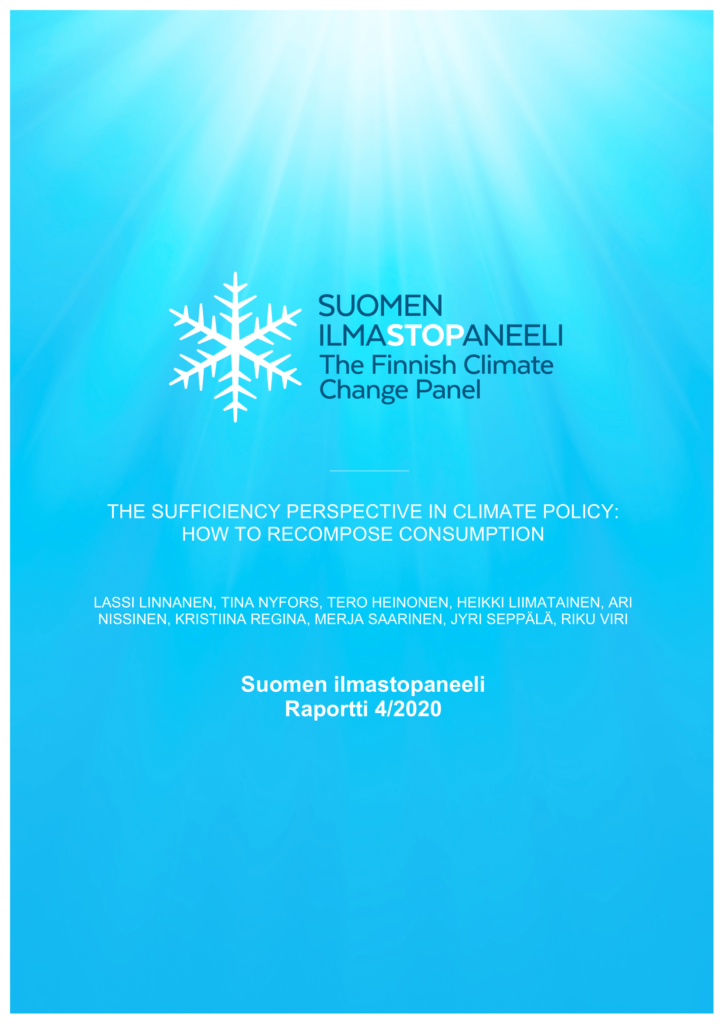The climate impact of household consumption is significant. In Finland, it accounts for about 66% of consumption-based greenhouse gas emissions. Recently the need for addressing consumption through more effective policies has been brought up, acknowledging the importance of steering consumption to lowcarbon options. The report does not explore territorial emissions accounting, which is the basis of the official reporting of emissions to the United Nations Framework Convention for Climate Change (UNFCCC).
Consumption-based accounting is introduced as a complementary approach, which includes domestic emissions and emissions from imported goods and services and excludes emissions from exports. The report is divided into two parts. The first part is written in English and reviews state-of-the-art of consumption-based emissions accounting, and how the concepts of 1) sufficiency and 2) recomposing consumption could be applied in climate policy. The second part is written in Finnish and focuses on how the consumption-based sufficiency approach could be implemented in climate policy in Finland. Two languages coexist in the report. English was chosen as the original working language of the whole report, but later in the writing process it was decided that the sections concerning specifically the Finnish situation were to be presented in Finnish.




